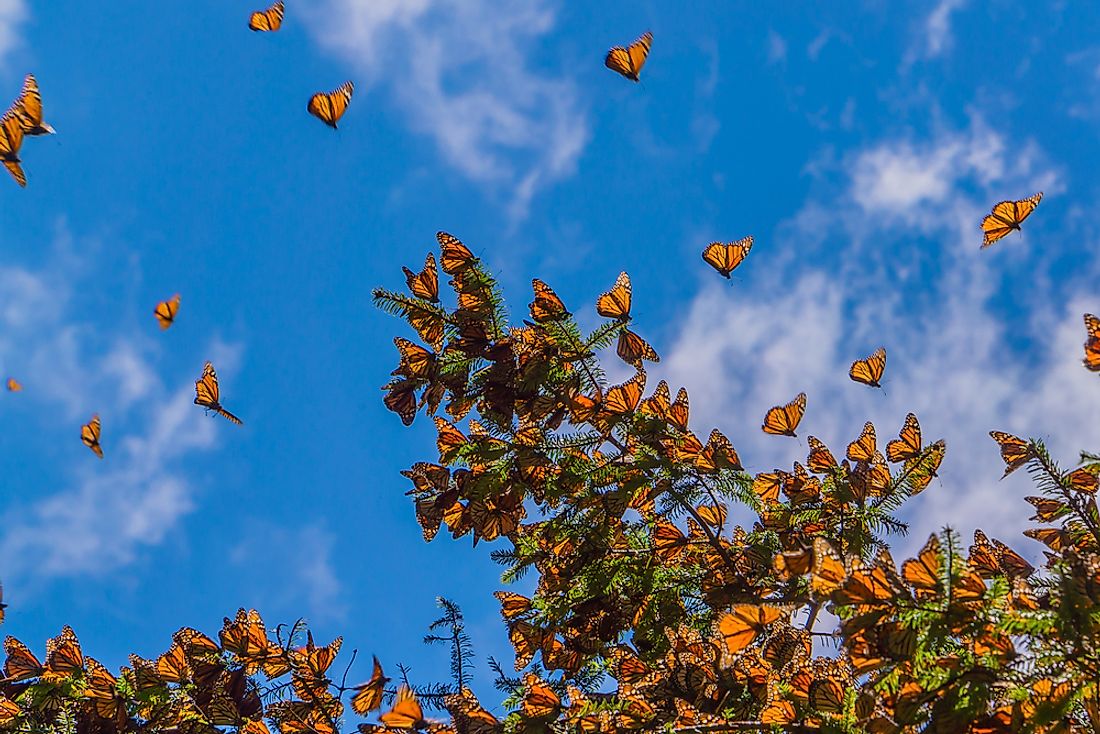Mexico's Most Famous Geographical Features

Mexico is a land of many wonders, both natural and human-made. It is a place of extremes and is endowed with forests, mountains, deserts, beaches, and many other natural treasures. The country has several geographical features that are globally famous for their beauty and ecological significance. Here is a list of some of the most wonderful geographical formations in the country:
Copper Canyon

A group of six distinct canyons together constitute Copper Canyon which is located in Chihuahua’s southwestern part. The canyons are part of the Sierra Madre Occidental mountain range. Six rivers draining the area form the canyons of the Copper Canyon group. These rivers drain into the Rio Fuerte river which ultimately empties into the Gulf of California. The group of canyons receives its name from the green colored walls. Tourists visiting the area enjoy a number of adventure activities like biking, driving, hiking, and more.
Sea Of Cortez

The Sea of Cortez, a marginal sea of the Pacific Ocean is located between Mexico and Baja California. It is often referred to as "the world's aquarium” since it is one of the world’s most diverse ecosystems. About 900 species of fish and 32 species of marine mammals breed and feed in the sea. Several species of whales including the elusive blue whales can also be seen here. A multitude of marine birds also thrives on the rich fish life in the Sea of Cortez.
Pico de Orizaba

A dormant stratovolcano, the Pico de Orizaba is Mexico’s tallest peak and North America’s third tallest peak. It is also the world’s second most prominent peak. It has an altitude of 18,491 feet above sea level and is located on the border between the Mexican states of Puebla and Veracruz in the Trans-Mexican Volcanic Belt. The volcano last erupted in the 19th century.
The Cave of Swallows

A large, deep, and dark open-air pit cave called the Cave of Swallows is located in Mexico’s San Luis Potosí state. It is the country’s second deepest pit and the world’s 11th deepest one. It has a drop of 1092 feet and 1,214 ft from the lowest side and the highest side, respectively. It is thus the largest cave shaft in the world. The mouth of the cave is elliptical in shape and it is located on a karst bedrock.
Cuatro Ciénegas Biosphere Reserve

This biosphere reserve in Mexico is host to a great diversity of flora and fauna. According to NASA, the study of life forms in the Cuatrociénegas could help in discovering life on Mars since the adaptations of the life forms in the reserve are unique. A high level of endemism can be seen in the reserve. Three endemic turtle species, eight endemic species of fish, and several endemic invertebrate species live there. The pools in the Cuatro Ciénegas hosts live stromatolites which are colonies of some types of cyanobacteria that have been extirpated from most parts of the world.
Sumidero Canyon

The Sumidero Canyon is located in Mexico’s Chiapas state. It is a deep natural canyon that is surrounded by the protected area of the Sumidero Canyon National Park. The park is covered by a deciduous rainforest. The canyon region is one of the most stunning landscapes of Mexico. There are 5 waterfalls, 30 rapids, 3 beaches, and 3 freshwater springs in the area. The canyon serves as the home of several threatened species of fauna including the American crocodile and the Central American river turtle. The canyon walls feature numerous caves, rock formations, and other notable features. The Sumidero Canyon is thus an excellent destination to enjoy nature and its wonders.
Mesoamerican Barrier Reef

The world’s second largest barrier reef is located off the coast of Mexico along the Caribbean coastline of the Yucatan Peninsula. The reef ecosystem is home to over 66 species of stony corals and more than 500 species of fish. A great diversity of marine mammals are also found here. The Mesoamerican Barrier Reef is one of the top spots for scuba diving and snorkeling in the northern hemisphere.
Cozumel

The Cozumel island of Mexico is located off the Yucatan Peninsula’s eastern coast in the Caribbean Sea. The island is home to many luxurious resorts. Tourists here enjoy a number of marine adventure activities like scuba diving and snorkeling. The island is covered with dense mangrove vegetation housing many endemic species. The karst topography of the land here is associated with numerous cenotes with many accessible to only qualified cave divers due to the danger associated with them.
The Monarch Butterfly Biosphere Reserve

This biosphere reserve is a World Heritage Site that is located at the border area between the Mexican states of State of Mexico and Michoacán. As the name suggests, the reserve is dedicated to protecting the monarch butterflies that arrive in millions to the reserve every year.
Cenotes And Underground Rivers

Mexico is also famous for its extensive network of cenotes and underground rivers which are especially common in the Yucatán Peninsula. A cenote is a natural sinkhole resulting from the collapse of limestone bedrock. Often, rainwater drains through these pits and flows underground in the form of rivers which then surface at a distant opening on the surface of the limestone bedrock. It is believed that the cenotes in Mexico were used by the ancient Maya to offer sacrifices.











